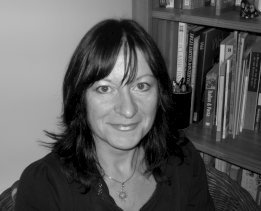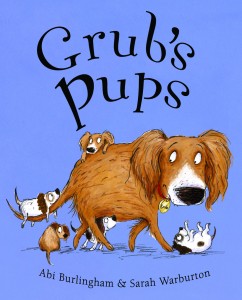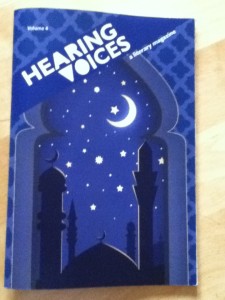Reciprocal Influences in Poetry and Prose
I’ve been trying to identify the driving force behind my writing.
It is not an easy thing to do when you have been writing for so long.
In fact, in trying to identify this I’ve come to realise that it has changed, and perhaps will continue to change.
Perhaps this is the way for all writers?
What I do know is that what started out for me as a means of self-expression, as a shy teenager, has developed into much more than that. At the root of it is a love of words, of what they mean, of what a person can do with them, and a need to speak without boundaries.
There’s a sense of the uninhibited with writing, a freedom and liberty. There are no rules, no constraints, no right or wrong way, and maybe this is why so many of us do it. I think you know you’re at home with something when it makes you smile as you’re doing it. That is how writing is for me – it makes me smile from ear to ear. When I am writing, I am at my happiest and become completely absorbed in it.
Writing poetry is my first love though, beginning when I was around nine or ten and gradually building up until I dared myself to enter a couple of competitions. I was a runner-up in both and had a short piece of writing published as a result. So even though I now predominantly write books for children, which I also love doing, I regularly return to writing poetry.
Probably the most influential poets for me have been Sylvia Plath, Philip Larkin, Spike Milligan, Thomas Hardy and Leonard Cohen, although my all time favourite poem is ‘A Blade of Grass’ by Brian Patten. Another favourite is ‘Remember me when I am gone away’ by Christina Rossetti, which my mum bought for me in a lovely little book form twenty one years ago.
This natural leaning towards poetry has influenced my other writing greatly.
My children’s stories, most recently the Ruby and Grub series, tend to have a lyrical quality, with hidden rhymes and words that fit together in a way that makes them almost meld.
From Grub in Love: ‘But Grub wouldn’t dig. Do you know what he did?’ Or there’s: ‘Joe covered his eyes – I have no idea why.’
Nothing must jar or seem unnatural. If there is a break of rhythm, the poet in me cringes against it. Sometimes, I have to let that go and remind myself that these are stories, not poems.
Ironically though, and surprisingly, I am now also finding that my story writing is affecting my poetry, and wonder if other writers of multiple genres find the same thing happening.
This is a new experience for me, and a pleasant one. I find I can now approach my poems from a different angle, creating a story within a story, looking at layers within the poem, taking out chunks and re-writing others as I might do with scenes from a story.
This change seemed to occur as I embarked on a series of longer books for slightly older children, where I had to hone my plotting skills. I began to see what was missing in poems that I had once felt were complete.
Needless to say, my newer poems, and re-writes of older ones, have taken on a different edge.
Amazingly, as a result of this, I was a runner up in this year’s Thynks Poetry competition with a poem called ‘Traeth Cerrig’, and have just had a poem, ‘Buried Treasures’, published by Crystal Clear Creators in Volume 4 of Hearing Voices, and have a poem, ‘Silverfish’ scheduled for a forthcoming Staple magazine.
Clearly, this shift, although unplanned, is a welcome one.
Writing more than one genre, I realise, is not for everyone, but it’s something I really enjoy. It allows me to use language in different ways. With children’s stories and adult novels, I can focus on plot threads and character development and build a whole different world.
With poems, the focus is on capturing a moment, a time or place, building layers, patterns, rhythm and sound. There’s a searching and analysis needed to unearth the meaning, or meanings, in a poem, which I like. It’s almost like a piece of trickery – a poem is often not what it at first seems.
Whatever I write I thoroughly enjoy, and a move from one genre to another is part of the challenge and excitement for me. Because writing is exciting, very exciting. As a child I always wanted to be able to fly and would often dream of flying. Writing gives me my wings and lets me fly, and of all the things I write, for me, my poems fly the highest.
—
Visit Abi’s website: http://www.abiburlingham.talktalk.net
Read and consider subscribing to Abi’s Blog
Follow Abi on Twitter @AbiBurlingham
Check out Abi’s Books: http://www.abiburlingham.talktalk.net/MyBooks.html
Abi also writes monthly for Awfully Big Blog Adventure.
Category: British Women Writers, Contemporary Women Writers, On Writing, Women Writing Poetry



























Hi Abi, I really enjoyed this post. I used to think that I should specialize in my writing but couldn’t decide whether to give up novel writing or poetry. I couldn’t give up either and I too find that each affects the other. I have never really ventured into writing for children but I recently had the opportunity to read children’s poetry with the Cheltenham Poetry Society, in Waterstones for Children in Need and it sparked something in me. Children think in a very free way and I liked the idea of that liberty.
Thanks for the post.
Hi Gill, thank you ever so much for that. I’m so glad you gave up neither the poetry or prose writing. I’m also working on a YA novel and adult novel – I find the more genres I try, the more I enjoy the whole process of writing. There really is no need for us to single one out is there? Your poetry reading experience sounds lovely. I think children really relate to poetry, hence rhyming books seem to appeal to them. I can recommend writing for children – it’s a lot of fun. I hope you give it a go. Thanks again.
Hi Abi
What I most enjoyed about this post is your honesty. It’s as if I’m am in the room with you and we’re just chatting way:)
It’s interesting to hear how not only your writing has evolved, but how your motivation for writing has also changed (oops! that sounds clumsy!). It’s inspiring! Sometimes I wonder how I will stay motivated, writing can sometimes seem such a lot of hard work (and lets not talk about financial/marketing side of things) and for what …? And then, as you say, the chapter, the novel, the idea, the story, the poem is fully formed. It exists and it’s exciting. Very exciting!
Thanks!
Hi Marianne, thank you so much for your wonderful response. It is sometimes hard to stay motivated isn’t it? We spend so many hours working on something and all the self-doubts creep in; sometimes it’s hard to see the wood for the trees. Self-belief is what we need isn’t it?… in bucketloads! I think I’ve just found you on twitter, so I will follow you and we can help keep each other motivated. Thanks again.
Really interesting post, Abi. Thank you. Like you, I feel liberated now that I’m collating all my past genres. Non-fiction has been my mainstay, but now having modest success with short fiction & poetry, and just polishing my children’s novel. You are a true writer-philosopher!
Ah, thank you Jacqueline, that’s so kind of you. It is so liberating when it all comes together isn’t it? Can’t wait to hear more about your children’s novel!
Lovely post, Abi. While not a poet myself and having to admit to finding most poetry impenetrable (my fault, I am sure), I do think prose should have a rhythm and cadence to it and do enjoy beautifully written prose. And why should we be constricted to only one genre anyway? Thank you for sharing.
Nxxx
Thank you Nettie. Yes, lyrical prose has a beauty to it doesn’t it? I find myself hypnotised by it. I tend to read out everything I write to make sure nothing trips me up and to try and keep the flow. Thanks again for your lovely comment and glad you enjoyed the post x
I can so relate to this post, Abi! My first love was also poetry. Even when I got to college and chose to major in creative writing, it wasn’t until I was a sophomore that I chose fiction. I guess I wanted to tell stories, but I don’t think that means I left poetry. Like you, my writing tends to be very lyrical, and it’s not enough for a sentence to say something; it has to sound right.
But for a while there, I did feel like I was cheating on Poetry with Fiction 😉 Solution? I wrote a poem about it. Go figure.
Hi Natalie! Thanks for that. I think poetry can offer such a lot in the writing of fiction, and you’re so right, we never completely leave it behind do we? What better way to deal with this issue than to write about it. Good luck with your writing.
I love this post for so many reasons. My favorite parts are that why you write changes over time — soooo true! And also that you love writing different genres — me too. This is one of the best posts I’ve read in a very long time. Wonderful!
Thank you so much Julia. I’m so pleased you like it. I really enjoyed writing it, and I have to say, from a writing point of view, it’s one of my favourites too. It really gave me a chance to think about why I love what I do so much. Thanks again!